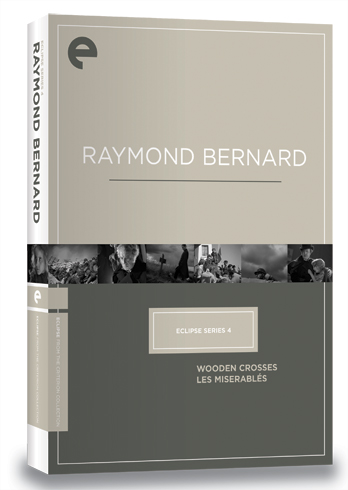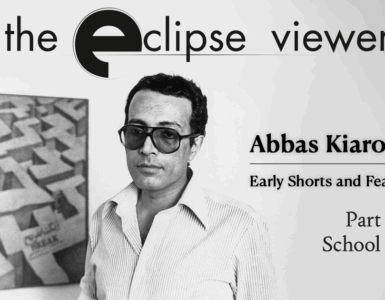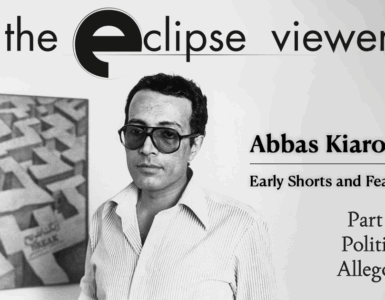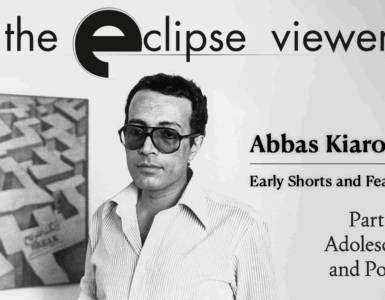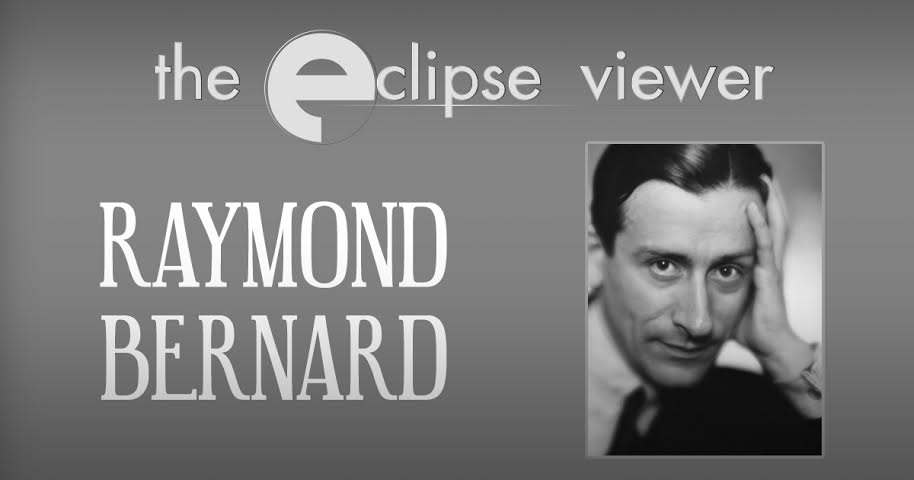
Podcast: Download (Duration: 2:07:30 — 117.3MB)
This podcast focuses on Criterion’s Eclipse Series of DVDs. Hosts David Blakeslee and Trevor Berrett give an overview of each box and offer their perspectives on the unique treasures they find inside. In this episode, David and Trevor discuss Eclipse Series 4: Raymond Bernard, a collection of films from the early 1930s by the French director, a pioneer of big budget historical epics in the silent and early sound eras.
About the films:
One of the greatest and least-known directors of all time, Raymond Bernard helped shape French cinema, at the dawn of the sound era, into a truly formidable industry. Typical of films from this period, Bernard’s dazzling dramas painted intimate melodrama on epic-scale canvases. These two masterpieces—the wrenching World War I tragedy Wooden Crosses and a mammoth, nearly five-hour Les misérables, widely considered the greatest film adaptation of Victor Hugo’s novel—exemplify the formal and narrative brilliance of an unjustly overshadowed cinematic trailblazer.
Subscribe to the podcast via RSS or in iTunes.
Timeline for the podcast:
Introduction/Background (00:00:01 – 00:17:22)
Wooden Crosses (00:17:23 – 00:57:19)
Les misérables (00:57:20 – 02:02:46)
Conclusion (02:02:47 – 02:07:30)
Buy The Box Set On Amazon:
Episode Links:
Director Overview:
- French Film Site biography by James Travers
- Wikipedia entry
- Filmography on MUBI
Box Set Reviews:
- Cineaste review by Philip Lopate
- New York Times review by Dave Kehr
- DVDTalk review by Jamie S. Rich
- PopMatters review by Michael Buening
Wooden Crosses:
- David’s Journey Through the Eclipse Series review
- Screencap images from film|captures
- New York Times review (from 1932) by Herbert L. Matthews
- French Film Site review by James Travers
- Antagony & Ecstasy review by Tim Brayton
- 2015 release announcement by Eureka Video
Les misérables:
- David’s Journey Through the Eclipse Series reviews: Part 1 / Part 2 / Part 3
- Screencap images from film|captures
- French Film Site review by James Travers
- TCM review by James Steffen
- Movies Over Matter review by Jason Marshall
- Ferdy on Films review by Marilyn Ferdinand
- IndieWire/Movie Crazy review by Leonard Maltin
- Criterion Blues review by Aaron West (comparison of the 1934 and 2012 adaptations)
- Masters of Cinema page from Eureka Video (UK)
- Factoids and background info from the MoC release, courtesy of Rossa Crow (SilverBlueSnow.blogspot.ie @SilverBlueSnow on Twitter):
-
Hugo was a playwright first and foremost and this influenced his novels where his characters and scenes are theatrical and dialogue-heavy.
Imagery and composition of the barricade scene singing of La Marseillese mirrors a famous piece of art by Delacroix.
Henry Krauss who plays Monseigneur Myriel played Jean Valjean in the 1912 silent version.
There is an excellent 1979 interview with Bernard :
What comes across was his passionate commitment to be faithful to the literary source. He says that the success and quality of the film was due to this passion and love they had for Hugo’s novel. His collaborator Andre Lang was a playwright and so added to the theatrical feel of the production.
Interestingly the 3 films were released together – contemporary audience had the option to watch all together on same day or separately.
Bernard placed special emphasis on the casting to match the physical description, manner and speech of the characters in the novel.
He relates story of auditioning about 200 boys for Gavroche – he needed a particular accent and slang. One day a caretaker from Saint Denis sent Bernard a message delivered by his son – Bernard knew immediately that this boy was Gavroche and cast him. The boy never acted again.
Bernard fought hard for this 5 hour version arguing that it could not be made in a shorter version.
Then there is an interesting supplement with Raymond Chirat that describes the extraordinary authenticity of the period detail in the film. Harry Baur was undoubtedly a favourite for the role not just because of his suitability but also his fame at the time. Baur had suffered typhoid leaving him with partial facial paralysis which is a feature of his facial expressions.
I was amazed at his physical strength – he carries Marius (I presume he weighed around 70 kilo) through the sewer with such ease. He was 53 at the time! When he descends the steps and stands up that is akin to squatting with a 70 kilo weight and he does it so effortlessly! Perfect as Jean Valjean!
Charles Vanel really impressed me as inspector Javert – also in the excellent Le Grand Jeu, Wages of Fear, Wooden Crosses, Les Diaboliques.
Cinematographer Jules Kruger (born in Strasbourg – part of Germany at the time) has an impressive filmography – Abel Gance’s Napoleon (noted as having some of the most innovative and brilliant camerawork ever), L’Argent by Marcel L’Herbier (brilliant silent film with photography that really impressed me), Wooden Crosses, Pepe le Moko, etc.
-
Next time on the podcast: Eclipse Series 41: Kinoshita and World War II
Contact us:


